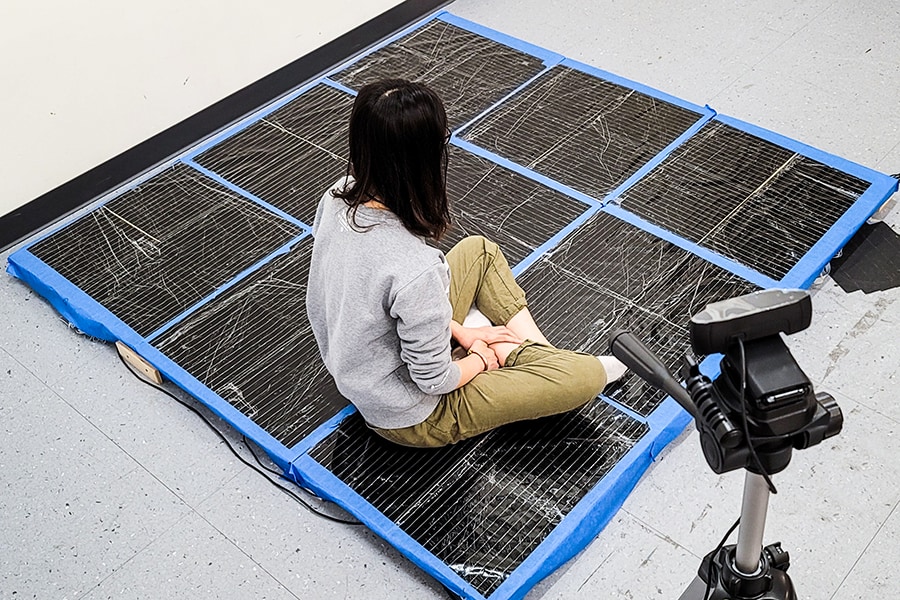Forget cameras, this carpet detects the presence and movements of people
MIT has developed an intelligent carpet capable of remotely monitoring people's movements without the help of cameras, often considered overly intrusive


 Image Courtesy of Computer Science & Artificial Intelligence Laboratory / Massachusetts Institute of Technology©
Image Courtesy of Computer Science & Artificial Intelligence Laboratory / Massachusetts Institute of Technology©
The Computer Science and Artificial Intelligence Research Laboratory (CSAIL) at the Massachusetts Institute of Technology (MIT) recently reported on its work on this "intelligent" carpet. The carpet was designed using a pressure-sensitive film and a conductive wire, with more than nine thousand sensors stretching about 10 meters in length. Each of these sensors converts human pressure into an electrical signal, thanks to the slightest physical contact, whether with a foot, a hand, the torso, etc.
The system has been specifically trained on specific tactile data, like a person doing push-ups. The idea is that it records a whole range of situations and that machine learning does its work. Currently, the model in place is able to predict the position of a person with a margin of error of less than 10 cm. When it comes to classifying specific actions (walking, turning around, squatting, sitting, rolling, doing push-ups, etc.), the system proves to be accurate in 97% of cases. For the moment, it remains difficult to decipher poses without explicit contact with the ground.
In the future, scientists want to improve the analysis when several users are present on the carpet simultaneously, for instance in cases where two people are dancing or hugging. In the long term, the idea is also to obtain more information about the height and weight of a person from simple tactical signals recorded by the mat.
For the moment, this is all still in development, in the prototype stage, but its uses could be endless. This mat could prove practical in a retirement home, to signal falls, as well as in a gym to calculate the number of calories burned from individuals" workouts. Other uses can also be imagined, such as in the realm of leisure activities like video games.
First Published: Jun 24, 2021, 15:29
Subscribe Now